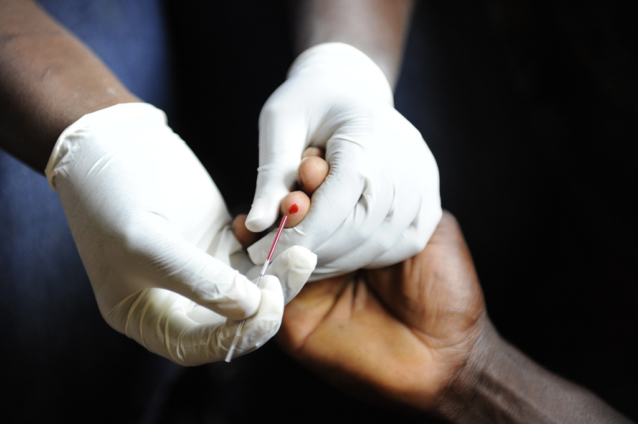The Western Regional Office of the Ghana AIDS Commission says about 23,904 persons are estimated to be living with HIV in the Region.
Mr Dramani Yakubu, the Western Regional Technical Coordinator of the Commission, who disclosed this to the Ghana News Agency in an interview in Takoradi, said about 1,101 new HIV infections were recorded in the Region last year, with a prevalence rate of 1.63 per cent.
“This is a major concern for the Commission and its partners, because it means out of every 100 people in the region, about two of them are living with HIV,” he said.
Mr Yakubu said the data showed that HIV infection was on the rise and cautioned members of the public against engaging themselves in activities that put them at risk of contracting the virus.
Mr Yakubu encouraged the people to take advantage of the self-testing initiative and voluntarily testing for the virus so they could know their statuses for possible swift response.
He said, “It is important to test to know our HIV status and that of our partners and if your test is positive, you ought to visit a health facility to start treatment immediately because taking medication consistently reduces the amount of virus in one’s body, promotes good health and prolongs their lifespan.”
He also encouraged members of the public to avoid stigmatising people living with the virus, saying HIV-related stigma created barriers to voluntary testing, treatment, care and support for individuals.
Mr Yakubu told the GNA that as part of activities to mark this year’s World AIDS Day, his office had partnered other stakeholders to distribute condoms, HIV test kits, educational fliers and leaflets to members of the public.
He said the theme for this year’s commemoration: “Let Communities Lead,” was a call for action for communities to play a more active role in the response against HIV.
Communities connect people with person-centered public health services, build trust, monitor implementation of policies and services, and hold service providers accountable.
As such, AIDS could end from being a public health threat if communities lead the way and played a more active role, he said.
Latest Stories
-
Center for Learning and Childhood Development Director Dr Kwame Sakyi honoured at Ghana Philanthropy Awards
6 hours -
Asantehene receives 28 looted artefacts
7 hours -
CAF WCL 2024: Ghana’s Thelma Baffour wins title with TP Mazembe
7 hours -
Benjamin Boakye slams politicisation of energy sector issues and ECG’s inefficiencies
8 hours -
Erastus Asare Donkor and Dr Neta Parsram win big at 10th Mining Industry Awards
8 hours -
Government is “suppressing information” about power sector challenges – IES Director
8 hours -
Majority of our debts caused by forex shortfall – ECG Boss
8 hours -
Pan-African Savings and Loans supports Ghana Blind Union with boreholes
9 hours -
Bole-Bamboi MP Yussif Sulemana donates to artisans and Bole SHS
9 hours -
Top up your credit to avoid potential disruption – ECG to Nuri meter customers
9 hours -
Dutch & Co wins 2024 Entrepreneur of the Year Award
9 hours -
We’ll cut down imports and boost consumption of local rice and other products – Mahama
12 hours -
Prof Opoku-Agyemang donates to Tamale orphanage to mark her birthday
13 hours -
Don’t call re-painted old schools brand new infrastructure – Prof Opoku-Agyemang tells gov’t
14 hours -
Sunon Asogli plant will be back on stream in a few weeks – ECG
14 hours

